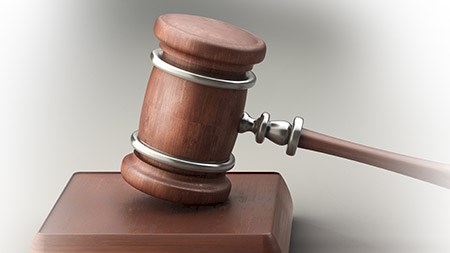Are you planning to sell your house but dread the thought of months of estate agents coming around with potential buyers, and deals falling through at the last minute? Listing your property for sale by auction is a great idea if you want to sell your house as quickly as possible.
Here’s is some useful information on how to sell your house at auction.
What to sell your house at auction
Certain types of properties are much more suitable for sale at auction. These include houses that would be hard to sell by traditional means, for example, if they needed significant renovation and investment; repossessed houses, which banks usually want to sell as quickly as possible to recover the debts; and unconventional properties, which are often difficult to value, for example a lighthouse. If you have a property that is in high demand, selling a house at auction may also be a good idea, as much higher prices are achievable in the heat of a bidding war than you would get through a conversation at an estate agent’s office.
Pick the right auction house or website
People are increasingly using property and auction websites to sell houses at auction. Online auctions typically run for a specific time period, for example 12 hours, after which the sale is awarded to the highest bidder. Representatives from the website will then arrange a meeting with the buyer, seller and lawyers to wrap up the deal. By using the online auction option, sellers can use estate agents or sell privately.
It saves costs, opens up the auction process to a much wider pool of potential buyers and is a quick, safe and hassle-free way to sell your house. If you decide to go the brick-and-mortar route, you need an auctioneer who offers property similar to yours within the same price range. Similar to choosing the right estate agents, you greatly improve your chances of getting a favourable deal on your house by choosing the right auction house.
Prices
Before listing your property for sale by auction, you will have to decide what your reserve price is. This is the minimum price that you will accept once the bidding starts, and it is crucial to set this at the right level. Once the reserve price is reached during the bidding process – either online or at a physical auction – the property will be sold and there is no going back.
If the reserve price is not reached during bidding, don’t despair: you can negotiate afterwards and still do a deal with a buyer on auction terms and conditions. There is also a guide price, which is not necessarily the same as the reserve price. Again, think carefully about this. It should be low enough to entice buyers to attend the auction, but it shouldn’t be unrealistically low so that bidders are put off as the price is driven up much higher during bidding.
READ MORE: Tips for buying and selling at property auctions
What will it cost you?
There are two types of fees applicable when selling a house at auction: entry fees (non-refundable), generally to cover the advertising of the property, and a sale fee, usually a percentage of the achieved sales price as commission. Different property and auction websites will have their own fee structures, usually much cheaper than the costs of their physical counterparts.
How does selling property at auction work?
At auction, the bid will only be awarded once the reserve price is exceeded. With online auctions, there usually is a cut-off time (they run for a specific time-period), and the bid is awarded to the highest bidder. With online auctions, the websites facilitating the sale will arrange for buyers and sellers to meet, where sales contracts will be signed. A deposit is usually payable after this meeting and will depend on the agreement made between the buyer and seller.
Since the auction website serves as a meeting point for buyers and sellers rather than a legal transaction, the sales process is similar to that of a property being sold the traditional way. At a physical auction, the highest bidder will have to pay 10% of the bid price on the spot, and has 28 days to come up with the rest of the money. The buyer will also have to sign the memorandum of sale and paperwork is then sent to the buyer’s lawyer.
Disadvantages of selling your home at auction
The main disadvantage is that you don’t know how much your property will sell for. Selling your house at a physical auction can also be more expensive than selling through estate agents.
In summary
How to sell your house at auction?
- Make sure that your property is sellable. Is it high-in demand or unique?
- List your property on an esteemed auction website
- You can also choose an auction house that handles the type of property you want to sell
- Have an entry fee and a sale fee ready
- Become educated on how the bidding process works
- Familiarise yourself with post-bidding fees and paperwork Call to Action
Let Private Property connect you with buyers looking for a property for sale by auction. Submit your listing to our website today and watch your property get the exposure it deserves.



